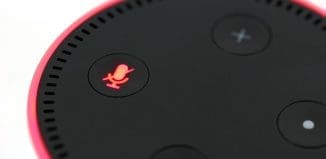Cellphone Tracking Technology Causes Political Stir
This post is also available in:  עברית (Hebrew)
עברית (Hebrew)
According to a recent committee report by the US House of Representatives, clearer guidelines are needed for law enforcement’s use of secretive and intrusive cellphone tracking technology, and police and federal agents should be upfront with a judge about their deployment.
The report examines the use of cell-site simulators by federal, state and local law enforcement agencies. The technology works by mimicking a cellphone tower, allowing law enforcement to collect basic data from cellphones in a particular area or neighborhood. The data can help police determine the location of a targeted phone without the user even making a call or sending a text message. The surveillance devices have been broadly adopted by police departments and federal agencies, which see them as vital in helping track the location of a criminal suspect. The Department of Homeland Security has 124 cell-site simulation devices, according to the report.
According to ABC news, local police departments across the country have used them repeatedly, too, and the Internal Revenue Service says it’s deployed the technology to pursue investigations into money laundering, identity theft and other crimes.
The House committee made several recommendations, including calling on state and local agencies to adopt policies that are in use by the Justice and Homeland Security departments.
The report also criticized the use of non-disclosure agreements that state and local law enforcement agencies sign with the FBI and the manufacturer selling the device. Those agreements, which prohibit local authorities from discussing their use of the simulators in court, “should be replaced with agreements that require clarity and candor to the court whenever a cell-site simulator has been used by law enforcement in a criminal investigation,” according to the House report.
The technology has raised Fourth Amendment concerns among privacy advocates for its ability to collect data not only about the targets of an investigation but also innocent bystanders who happen to be within range of the simulator device.
“While law enforcement agencies should be able to utilize technology as a tool to help officers be safe and accomplish their missions, absent proper oversight and safeguards, the domestic use of cell-site simulators may well infringe upon the constitutional rights of citizens to be free from unreasonable searches and seizures, as well as the right to free association,” the report stated.





























